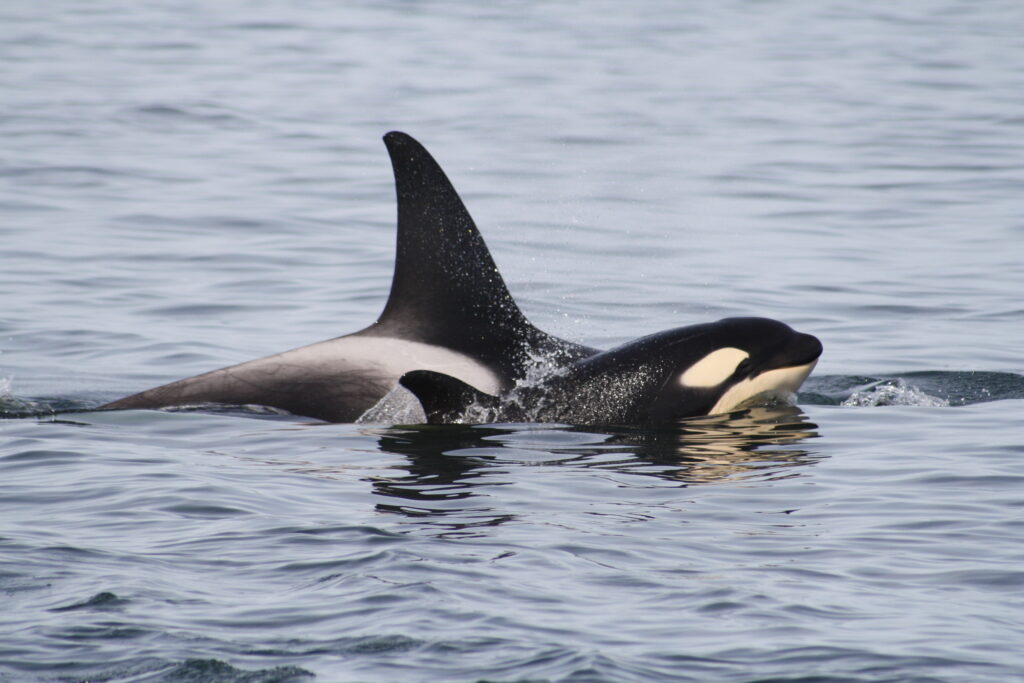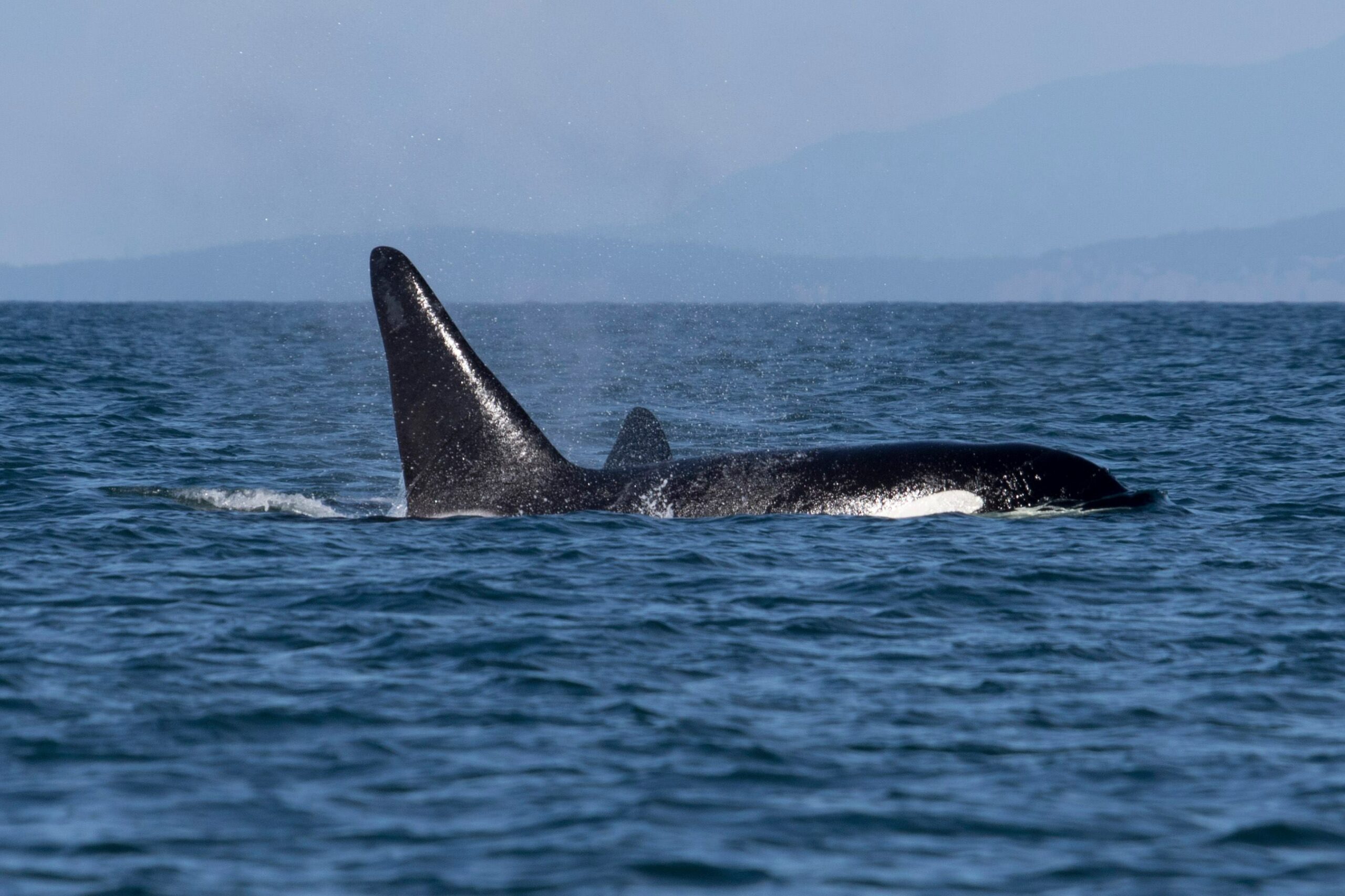Happy Father’s Day! We suspect you’ve already found a way to treat the dads in your life. However, our orca friends are probably not spending too much time lavishing love on their hard-working fathers… because orcas are not great dads.

Orcas (also known as Killer Whales) are a “matrilinear” species. This means that they live in family groups that are organized around a matriarch of some kind, whether that be a mother, grandmother, or even great-grandmother. Sometimes, Bigg’s Killer Whales (ones that are not Southern Residents) will disperse, but they may also return to their original pods later in life.
Both male and female offspring of the Southern Residents stay with their parents in a “matriline” for life, but sons are more of a drain on the pod matriarchs. Scientists are still debating why exactly orca males are such a pain, but it’s likely because the females take the lead. Female orcas also reach maturity faster, at around 12-13 years of age, while males won’t reach maturity until they are 15-20 years old. Males also only live to be about 30, whereas females live to be about 50.
According to a 2011 study, male orcas are sexually active and virile for longer than females. Once their calf is born, however, they aren’t very active parents. Amy Rowley, writer for OceanWise, says orca males are “great babysitters, companions and playmates to younger relatives in their natal matrilines,” but not really great father figures.
Works consulted + further reading.
Ford, M. J., Hanson, M. B., Hempelmann, J. A., Ayres, K. L., Emmons, C. K., Schorr, G. S., Baird, R. W., Balcomb, K. C., Wasser, S. K., Parsons, K. M., & Balcomb-Bartok, K. (2011). Inferred Paternity and Male Reproductive Success in a Killer Whale (Orcinus orca) Population. The Journal of heredity, 102(5), 537–553. https://doi.org/10.1093/jhered/esr067
Rowley, Amy (May 8, 2020). “A Mother’s Love: Killer Whale Culture.” OceanWise. https://www.ocean.org/blog/a-mothers-love-killer-whale-culture/
Weiss, M. N., Ellis, S., Franks, D. W., Nielsen, M. L. K., Cant, M. A., Johnstone, R. A., Ellifrit, D. K., Balcomb, K. C., 3rd, & Croft, D. P. (2023). Costly lifetime maternal investment in killer whales. Current biology: CB, 33(4), 744–748.e3. https://doi.org/10.1016/j.cub.2022.12.057
